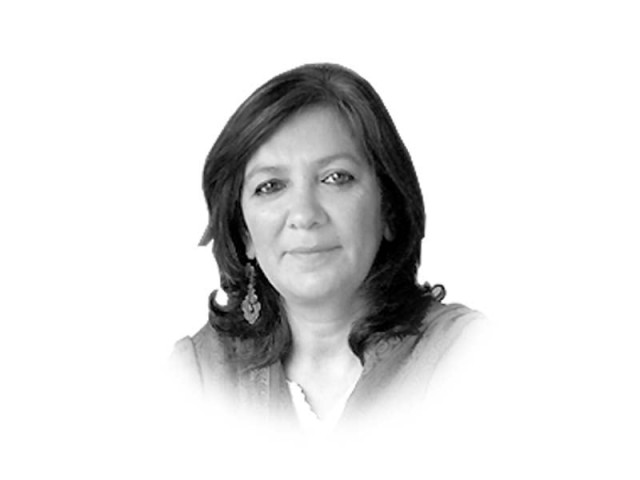The intricacies of Pak-Afghan relations
Why is Karzai and his government continuing to point an accusing finger at the Pakistani agencies?

The writer is a consultant based in New Delhi, where she writes for Business Standard and blogs for The Times of India
As an Indian observer of the politics of the subcontinent, I am beginning to think that the bad blood between India and Pakistan is absolutely no match for the ongoing vituperative combat between Islamabad/Rawalpindi and Kabul.
History, they say, has that incredible way of coming home to roost. The great Khan Abdul Ghaffar Khan or Badshah Khan pleaded with Mahatma Gandhi not to allow the partition of the subcontinent to take place in 1947, not least because, he argued, the Pashtuns would become the first victims to the religious radicalisation that was already taking place in his part of the world.
It is said that Gandhi, who had incredible respect for Badshah Khan and believed that he was the first foot soldier in the non-violent movement, or satyagraha, that had been launched to evict the British from India, even considered the idea. But Gandhi was dissuaded from pushing it through by his fellowmen in the Congress party who pointed out that it would be virtually impossible to sustain a lifeline to the Pashtuns so many thousands of miles away. India would, unfortunately, have to let them go.
More than 65 years later, so many new questions are in the offing, not least the relationship between the Pashtuns of Pakistan and Afghanistan and the ongoing struggle over the transformation of the Durand Line into an international border.
And as the Americans begin to leave Afghanistan, in preparation for withdrawal in 2014, it is fascinating to watch the rising tension between Kabul and Islamabad/Rawalpindi. None other than President Hamid Karzai, as well as his senior officials, have directly accused the Pakistani government of instigating terrorism inside Afghanistan through their proxies — read: the Haqqani network in North Waziristan and sundry Taliban outfits. Naturally, the Pakistanis have junked that claim.
Pakistani analysts have often said that India cannot begin to take Pakistan’s place in Afghanistan’s affections — a strange statement that implies the Afghans have no minds of their own. The Pakistani argument is that India doesn’t even share a border with Afghanistan and that it is Pakistan, not India, that has suffered the blowback from the Afghan problem these many decades.
Both Delhi and Kabul concede both these points. In fact, the Afghans always seem grateful to the people of Pakistan for hosting them in their country for decades. It is the Pakistani establishment, the Afghans believe, that has not been able to reconcile to the fact that Afghanistan is an independent country and will take decisions in its own national interest. If that includes the improvement of relations with India, well, so be it.
Several Pakistanis concede Afghanistan’s sovereign right to pursue relations with the countries of its choosing. But as Pakistan moves to complete the first five years, ever, of democratic rule in its history, one question remains unanswered: why is Karzai and his government continuing to point an accusing finger at the Pakistani agencies?
According to Musa Hotak, a former Taliban leader of some repute, a senior Pakistani diplomat in Afghanistan told him that Kabul cannot allow New Delhi to become a favoured partner. This conversation is supposed to have taken place during Ramazan last year.
Even at the trilateral forum in London in February, when Pakistan pressed the Afghans to sign a strategic partnership agreement, one key demand was that India needed to be sidelined. It seems that the Pakistani side kept asking the Afghans why they didn’t want to sign such an agreement with them, when they had signed a similar document with India in 2011.
Nothing infuriates the Afghans more than this; that they need to be “told” by a foreign country — in this case, Pakistan — how to conduct their foreign affairs. Several Afghans have told me that Pakistan still hasn’t come to terms with the fact that 2014 will not be 1989, when the Soviets left Afghanistan, or 1992, when Mohammad Najibullah was killed.
As Pakistan goes to the polls again, the question remains: will the new government in Islamabad move to transform its relationship with Kabul?
Published in The Express Tribune, April 11th, 2013.















COMMENTS
Comments are moderated and generally will be posted if they are on-topic and not abusive.
For more information, please see our Comments FAQ